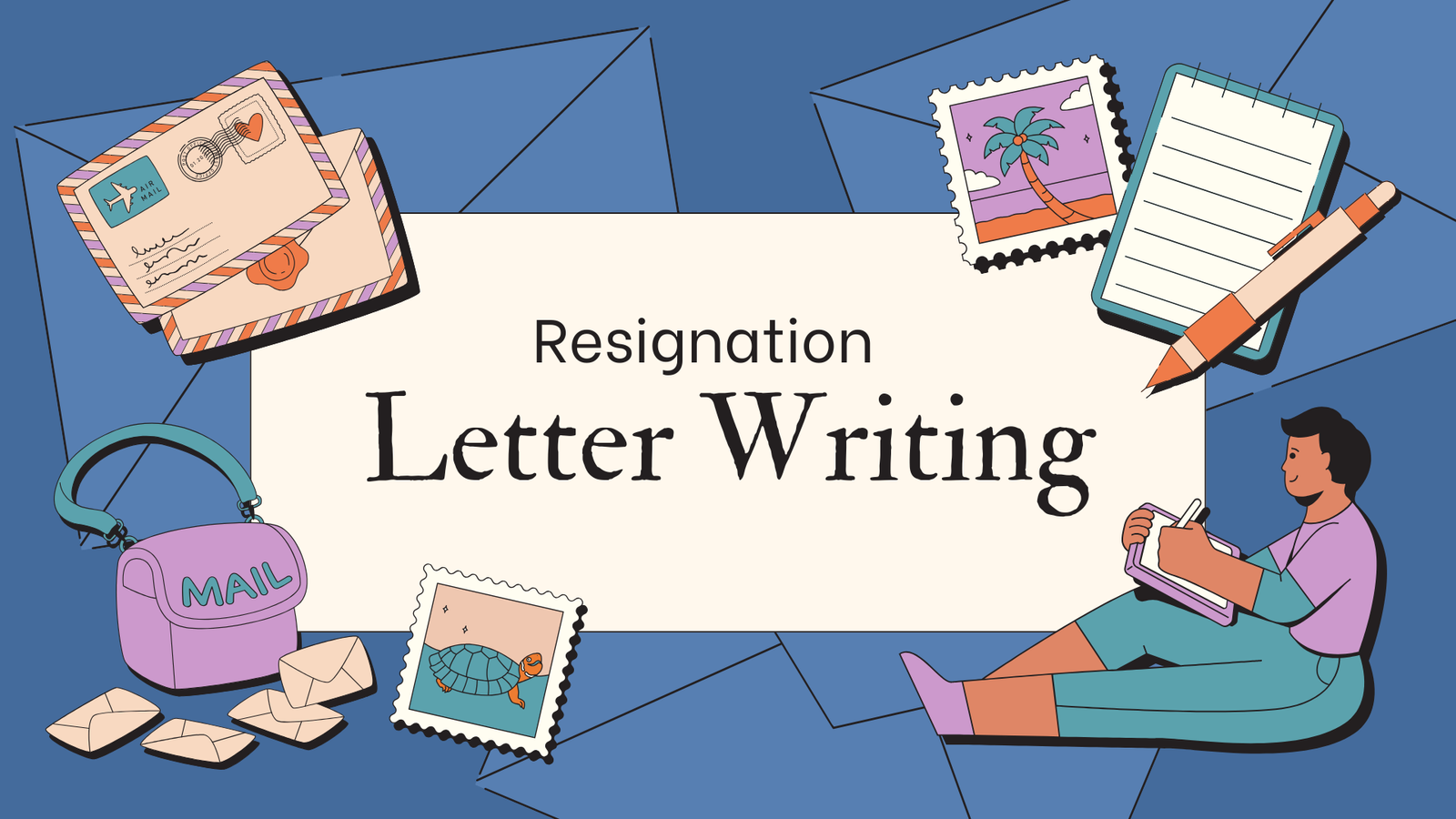Introduction: Understanding the Importance of a Resignation Letter
A resignation letter is more than just a formality; it’s a crucial document that sets the tone for your departure and maintains professionalism in your career. Whether you’re moving to a new job, pursuing personal growth, or taking time off, submitting a well-crafted resignation letter allows for a graceful exit, preserving positive relationships and supporting a smooth transition. In this guide, we’ll break down the essentials of writing an effective resignation letter, including the structure, tone, and timing.
Table of Contents
- Introduction: Understanding the Importance of a Resignation Letter
- What Is a Resignation Letter?
- Key Elements of a Resignation Letter
- Step-by-Step Guide to Writing a Resignation Letter
- Resignation Letter Examples
- Example 1: General Resignation Letter
- Example 2: Resignation Letter for Career Growth
- Example 3: Resignation Due to Relocation
- Example 4: Resignation Letter Due to Personal Reasons
- Example 5: Resignation Letter Due to Health Reasons
- FAQs
- Recent Posts
What Is a Resignation Letter?
A resignation letter is a formal written notice that communicates your intent to leave your current position. This document, generally addressed to your supervisor or HR, serves multiple purposes:
- Professional Courtesy: Shows respect for your employer by providing adequate notice.
- Legal Documentation: Some companies require written notice for official record-keeping.
- Clear Communication: Helps avoid misunderstandings and ensures all parties are informed.
Key Elements of a Resignation Letter
When writing a resignation letter, it’s important to include specific elements to maintain clarity and professionalism:
- Date: Place the date at the top of the letter.
- Recipient’s Name and Position: Address the letter to your direct supervisor or HR.
- Statement of Resignation: Clearly state your intent to resign from your current role.
- Last Working Day: Mention your final working day, adhering to any notice period requirements.
- Thank You Note: Express gratitude for the opportunities provided by the organization.
- Transition Offer: Offer to assist in the transition process if possible.
- Contact Information: Provide your contact information if necessary.
Step-by-Step Guide to Writing a Resignation Letter
1. Start with a Polite Opening
Begin your resignation letter with a polite opening. This sets a positive tone and shows respect. Example:
“Dear [Manager’s Name], I am writing to formally announce my resignation from my position as [Your Position] at [Company Name].”
2. State Your Intent Clearly and Professionally
Be direct but courteous when stating your resignation. Make it clear that you are leaving without ambiguity.
3. Mention Your Last Working Day
To help your employer prepare, specify your last working day based on your notice period:
“My last working day will be [Date], allowing me to fulfill my [X]-week notice period.”
4. Offer a Smooth Transition
Show your commitment to a smooth transition by offering assistance. This can mean training a replacement or helping to finish critical tasks.
5. Express Appreciation
Expressing gratitude for the opportunities, growth, and learning experiences fosters goodwill:
“I would like to thank you and the entire team for the support, opportunities, and encouragement during my tenure.”
6. Close Professionally
End your resignation letter with a professional closing statement, such as “Sincerely,” followed by your name and contact details.
Resignation Letter Examples
Here are a few tailored resignation letter examples based on common scenarios:
Example 1: General Resignation Letter
“Dear [Manager’s Name],
Please accept this letter as formal notice of my resignation from [Company Name], effective [Last Working Day]. I am grateful for the professional and personal growth opportunities. I am committed to ensuring a smooth transition and am happy to assist in training my replacement. Thank you again for everything.
Sincerely,
[Your Name]”
Example 2: Resignation for Career Growth
“Dear [Manager’s Name],
I am writing to announce my resignation from [Company Name], effective [Last Working Day]. This was a difficult decision, but I am excited to pursue new opportunities in my career. Thank you for the invaluable experiences, and I look forward to staying in touch.
Sincerely,
[Your Name]”
Example 3: Resignation for Relocation
“Dear [Manager’s Name],
I am submitting my resignation due to my upcoming relocation. My last working day will be [Last Working Day]. I am grateful for the opportunity to work with such a dedicated team and will do my best to ease the transition.
Best Regards,
[Your Name]”
Example 1: General Resignation Letter
Subject: Formal Resignation – [Your Full Name]
[Your Name]
[Your Position]
[Company Name]
[Company Address]
[City, State, Zip Code]
[Date]
[Manager’s Name]
[Manager’s Position]
[Company Name]
Dear [Manager’s Name],
I am writing to formally announce my resignation from my position as [Your Position] at [Company Name], effective two weeks from today on [Last Working Day].
I have thoroughly enjoyed working at [Company Name] and am grateful for the professional and personal growth I have gained while being part of the team. The experiences and skills I’ve developed here have been invaluable, and I look forward to applying them in my future endeavors.
I am committed to ensuring a smooth transition over the next two weeks, and I am happy to assist in training my replacement or completing any outstanding tasks.
Thank you once again for the opportunity to work at [Company Name]. I look forward to staying in touch and will always appreciate the support and encouragement from you and the team.
Sincerely,
[Your Name]
[Your Contact Information]Example 2: Resignation Letter for Career Growth
Subject: Resignation – [Your Full Name]
[Your Name]
[Your Position]
[Company Name]
[Company Address]
[City, State, Zip Code]
[Date]
[Manager’s Name]
[Manager’s Position]
[Company Name]
Dear [Manager’s Name],
Please accept this letter as formal notice of my resignation from [Company Name], effective [Last Working Day].
This was a challenging decision to make as I am deeply grateful for the opportunities I have had here, which have been instrumental in my career growth. After careful consideration, I have decided to pursue a role that aligns with my long-term career goals and aspirations.
During my remaining time at [Company Name], I am fully committed to ensuring a smooth transition, including training my successor and completing pending tasks.
Thank you for the invaluable experiences and mentorship I have received. I hope to maintain a positive connection and am eager to stay in touch.
Sincerely,
[Your Name]
[Your Contact Information]Example 3: Resignation Due to Relocation
Subject: Notice of Resignation – [Your Full Name]
[Your Name]
[Your Position]
[Company Name]
[Company Address]
[City, State, Zip Code]
[Date]
[Manager’s Name]
[Manager’s Position]
[Company Name]
Dear [Manager’s Name],
I am submitting this letter to formally resign from my role as [Your Position] at [Company Name] due to my upcoming relocation. My last day of work will be [Last Working Day].
I am genuinely grateful for the support and opportunities I’ve received during my time here. Working with you and the team has been a privilege, and it is difficult to say goodbye. However, this move is an essential next step for my personal and family needs.
Please let me know how I can assist during this transition. I am available to train my replacement or help with any unfinished projects.
Thank you once again for everything, and I hope to stay connected as I move forward in this new chapter.
Best regards,
[Your Name]
[Your Contact Information]Example 4: Resignation Letter Due to Personal Reasons
Subject: Resignation Due to Personal Reasons – [Your Full Name]
[Your Name]
[Your Position]
[Company Name]
[Company Address]
[City, State, Zip Code]
[Date]
[Manager’s Name]
[Manager’s Position]
[Company Name]
Dear [Manager’s Name],
I am writing to formally announce my resignation from [Company Name], effective [Last Working Day]. This decision has been driven by personal reasons that require my full attention and presence.
I want to express my sincere gratitude for the opportunities and support I have received from you and the team. It has been a pleasure working here, and I am proud of what we have achieved together.
I will do my utmost to ensure a seamless transition and am available to help with any pending tasks or to provide training as needed. Thank you again for your understanding and support during this time.
Warm regards,
[Your Name]
[Your Contact Information]Example 5: Resignation Letter Due to Health Reasons
Subject: Resignation Due to Health Reasons – [Your Full Name]
[Your Name]
[Your Position]
[Company Name]
[Company Address]
[City, State, Zip Code]
[Date]
[Manager’s Name]
[Manager’s Position]
[Company Name]
Dear [Manager’s Name],
It is with regret that I submit my resignation from [Company Name], effective [Last Working Day]. Due to health reasons, I must focus on my recovery and prioritize my well-being.
I appreciate the understanding and flexibility that you and the organization have shown me during this time. Working with such a supportive team has been a blessing, and I am grateful for all the opportunities and learning experiences I have had here.
Please let me know how I can assist with the transition process. I hope to stay in touch and am open to connecting in the future.
Sincerely,
[Your Name]
[Your Contact Information]FAQs
-
How much notice should I give in my resignation letter?
Most companies require a two-week notice, though some roles may need longer. Check your contract or consult HR for guidance.
-
Can I email my resignation letter?
Yes, in today’s digital age, emailing your resignation is acceptable. However, if possible, speak to your manager first before sending the letter.
-
Is it necessary to give a reason in my resignation letter?
No, providing a reason is optional. You can keep your letter professional and concise without specifying details.
-
Can I withdraw my resignation after submitting the letter?
In certain cases, yes, but it depends on the company policy and circumstances. Consult with HR if you change your mind.
Recent Posts
- Guide to Formal Letter Format: Structure, Examples, and Tips
- How to write a perfect Resignation Letter: with Examples
- Letter Writing Format: Formal & Informal Letters




